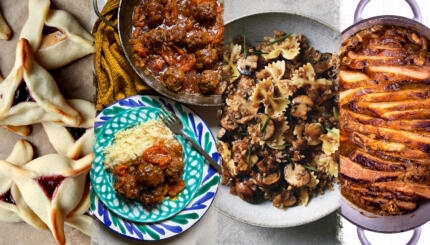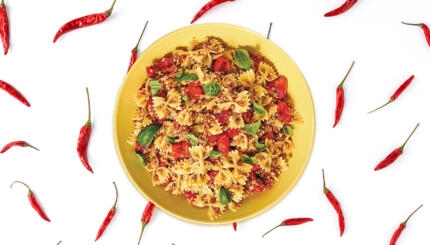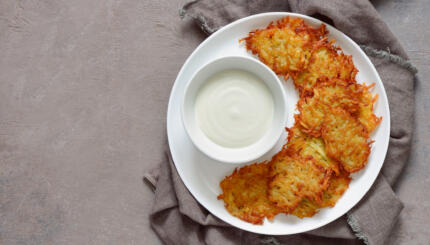Throughout my childhood, I looked forward to sitting down at the Passover seder table to recall the Israelites’ exodus from Egypt, eat delicious dishes, and reunite with relatives. However, my greatest memories from the annual seder were observing family traditions. For example, my father often handed out sensory plague kits to demonstrate each devastating catastrophe that befell the Egyptian people such as red food coloring to display blood, foam balls to illustrate hail, and bubble wrap to convey the texture of boils. Additionally, over dessert, my aunt instituted a special game known affectionately as the “marmal-off.” During the “marmal-off”, a contestant closed their eyes as someone else fed them assorted colored pieces of fruit marmalade. The object of this perception test was guessing the correct colors based on our sense of taste alone! These games and gimmicks amused us and, more importantly, inspired me and my older siblings to infuse energy into subsequent festival gatherings.
In the spirit of cultivating joy and creativity this Passover, when coming together is simply not an option as in past years, I want to offer an alternative seder. This one which may animate a younger generation of guests and engage older guests looking for haggadot inspiration. (PS If you want a Haggadah in booklet form, check out the ISJL’s Passover Pilgrimage Haggadah here.)
Seder is the Hebrew word that means order and establishes the sequence of Passover rituals like dipping the parsley in salt water, drinking four cups of juice or wine, and washing our hands throughout the occasion. The concept of order also pertains to board games as participants take turns rolling a dice and abide by established playing guidelines. Therefore, board games are a perfect and thoroughly enthralling vehicle to organize your upcoming Passover gatherings!
Below I list several popular games adjusted with a few seasonal twists to coordinate with the ascribed parts of a conventional seder. I encourage you to adapt one or more of these hands-on activities for your own family celebration or even design your own original Passover tabletop game!
Pictionary – The Four Questions
When the youngest child poses the Four Questions, they help the group understand the significance of the Passover seder, a night different from all other nights. I think this early moment in the seder further reflects the Jewish tradition of celebrating questions and renewing our heritage through lively discussion. The archetypal party game Pictionary also prompts debate and deliberation. This year, if you have children at your table, ask them to illustrate terms related to Passover while everyone else guesses the holiday words. Starting with this classic game is a perfect way to set a merry, inquisitive environment for learning and conversation!
The Game of Life – Maggid (Telling the Story)
At the core of any seder, we remember the Israelites’ bondage in Egypt, and Moses’s initiative to lead the people towards freedom. A fitting game to express the tortuous journey of the Israelites is Life! In this rendition, each participant represents a slave in Egypt and, throughout the game, moves through various stages and conflicts before crossing the Red Sea. Obstacles that might arise include avenging Egyptians, the sweltering climate, and neglecting to leaven your bread in time for travel. As players pass between spaces, they can form families, advance to new occupations, and experience the gravity of the Exodus through Life’s twists and turns.
Clue – Finding the Afikoman
The festive meal may have finished, but celebrants cannot conclude the seder without eating a piece of the afikoman, the slab of matzah that is often concealed for children to discover. The custom of searching for the afikoman is already fun; but if you want to up the ante this Passover, consider stealing a few notes from the mystery game Clue. Before the detective work commences, call all the afrikoman hunters together to explain the new rules. To win, a sleuth will try to determine three facts in a time allotted: 1) Finding out which room of the house the treat is stashed; 2) Uncovering the relative guilty of stealing the matzah; and 3) Identifying the variety of matzah (chocolate-covered, gluten-free, shmura, etc.) that disappeared. This enhanced afikoman competition will surely send-off the Passover seder with flare and suspense!
Board games may inspire some friendly rivalries but, ultimately, they remind us of the joy of spending time with people we love. Whether games become a part of your Passover practice or not, take time this holiday to delight in laughter, fun, and imagination. These values connect our community together to find light among our culture and tradition.



